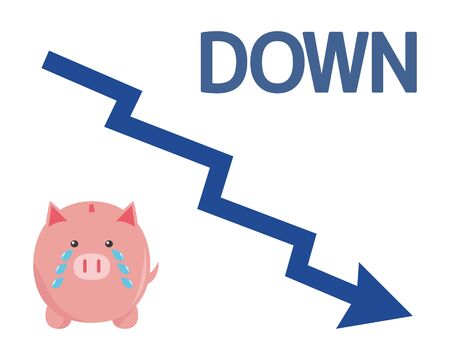Understanding What FIRE Really Means
When you first hear about FIRE—Financial Independence, Retire Early—it might sound like a fantasy reserved for Silicon Valley tech wizards or Wall Street pros. But in reality, FIRE is a movement that’s rooted in practical, everyday financial habits that anyone can start. At its heart, FIRE means saving and investing enough so that work becomes optional, not mandatory. It’s about gaining control over your time and choices, not just escaping the 9-to-5 grind.
There are a few misconceptions floating around about FIRE. Some people think it means living on ramen noodles forever or sacrificing every little joy in life. Others believe it requires making six figures right out of college. The truth is, FIRE isn’t one-size-fits-all. For some Americans, it’s about aggressive saving and retiring at 40; for others, it’s about reaching a point where they can switch to part-time work or pursue passion projects without money worries.
The paths to FIRE are as diverse as the people pursuing them. Some families focus on frugality—cutting back on expenses and finding joy in simple pleasures. Others ramp up their income through side hustles or advancing their careers. Many combine these strategies with smart investing, such as maxing out retirement accounts or exploring real estate. No matter the route, the common thread is building financial resilience: developing the mental strength and practical know-how to stick with your goals when things get tough.
2. Setting a Clear Why to Keep You Motivated
One of the strongest drivers behind achieving FIRE (Financial Independence, Retire Early) is having a clear and personal “why.” When you know exactly what you’re working toward, it becomes much easier to weather tough times and stay emotionally invested in your plan. Let’s explore practical ways to uncover your own motivations and keep them front and center during your financial journey.
Understanding Your Personal Financial Goals
The first step is getting honest with yourself about what truly matters. Are you hoping to travel more, spend time with family, or simply reduce stress about money? Take some time to reflect on your deepest priorities. These goals are unique to every individual and family, and they form the backbone of your commitment.
Identifying Core Values
Ask yourself questions like: What do I want my life to look like in five, ten, or twenty years? What experiences do I want for myself and my loved ones? Which values guide my daily choices—security, freedom, generosity, creativity? Jot these down for clarity.
Example Table: Connecting Values and Financial Goals
| Core Value | Related Financial Goal | How It Keeps You Motivated |
|---|---|---|
| Family Time | Save for flexible work schedule or early retirement | Reminds you that every dollar saved brings more time together |
| Adventure | Build a travel fund or passive income for exploration | Keeps you excited about future possibilities |
| Security | Create an emergency fund, pay off debt | Eases worry during setbacks or market downturns |
| Giving Back | Plan charitable giving or community projects post-FIRE | Makes saving feel meaningful beyond your own needs |
Making Your “Why” Visible
Once you’ve pinpointed your reasons for pursuing FIRE, put them somewhere visible. Maybe it’s a vision board in your kitchen, a note on the fridge, or even a reminder on your phone’s lock screen. Seeing your “why” every day helps maintain emotional investment—even when sticking to the budget feels tough.

3. Building a Mindset for Long-Term Success
Achieving FIRE (Financial Independence, Retire Early) isn’t just about crunching numbers or maximizing your investment returns—it’s about developing the right mindset to weather life’s unpredictable storms. In the U.S., where the cost of living can swing wildly and unexpected expenses pop up (think medical bills, car repairs, or even sudden job changes), building mental resilience is just as important as building your portfolio. Here are some practical techniques to help you stay committed for the long haul.
Cultivating Patience During Market Ups and Downs
Stock market volatility is par for the course in any long-term investing journey. When you see your 401(k) or IRA dip during a downturn, it’s easy to panic—but remember, FIRE is a marathon, not a sprint. Practice patience by focusing on your long-term goals rather than short-term market movements. Try setting regular “money check-ins” with yourself or your partner to review your progress and reaffirm your why. This habit helps keep your eyes on the prize and discourages knee-jerk reactions when markets get bumpy.
Bouncing Back from Life’s Curveballs
Unexpected expenses are inevitable—whether it’s a surprise medical bill, home repair, or family emergency. Instead of letting these setbacks derail your plans, embrace resilience by treating them as learning opportunities. Build up an emergency fund that covers at least 3-6 months of living expenses so you’re prepared when life happens. If you need to dip into that fund, don’t feel guilty; that’s what it’s there for! Afterward, make a plan to replenish it and get back on track.
Practicing Gratitude Along the Journey
The path to financial independence can sometimes feel like an endless climb, especially when friends or coworkers seem to be spending freely while you’re focused on saving. Counteract comparison fatigue by regularly practicing gratitude. Take time each week to list what you’re thankful for—whether it’s a paid-off credit card, a homemade meal shared with family, or even a cozy night in instead of an expensive night out. This simple practice can boost your mood and help you appreciate the small wins along the way.
Real-Life Tip:
Consider starting a “gratitude jar” with your family. Each member writes down something they’re grateful for related to your FIRE journey (like making an extra mortgage payment or enjoying a free community event) and adds it to the jar. Review these notes together during tough times for an instant mindset boost.
Staying Focused Despite Setbacks
Remember: setbacks are normal and part of every financial journey. The key is to acknowledge them without letting them define you. Stay flexible, adjust your plans if needed, and keep moving forward—one step at a time.
4. Embracing Community, Accountability, and Support
If you’re on the journey to Financial Independence, Retire Early (FIRE), you’ve probably realized that staying committed isn’t always easy—especially when life throws curveballs or you feel like you’re going it alone. That’s why surrounding yourself with a supportive community is one of the smartest mental strategies for building financial resilience.
Why Community Matters on the FIRE Path
Connecting with others who share your FIRE goals can make a huge difference. Not only does it give you access to new ideas and inspiration, but it also offers practical encouragement when your motivation dips. Whether it’s friends, family members who “get it,” or online groups filled with like-minded folks, these connections help keep your momentum going.
Ways to Build Your FIRE Support Network
| Type of Support | How It Helps | Examples |
|---|---|---|
| Friends & Family | Provide emotional support and can join you in your financial goals | Monthly budget check-ins, frugal family activities |
| Online Communities | Offer advice, accountability, and diverse perspectives | Reddit r/financialindependence, ChooseFI Facebook group |
| Accountability Partners | Help you stay on track by sharing progress and setbacks | Bi-weekly call or text updates with a trusted friend pursuing FIRE |
| Local Meetups | Create real-world connections and motivate through shared experiences | FIRE meetups via Meetup.com or local library events |
The Power of Shared Goals and Encouragement
The journey toward financial independence is much less daunting—and far more rewarding—when you know others are rooting for you. Sharing both your wins and struggles makes the process feel less isolating. Plus, hearing how others handle challenges can spark creative solutions for your own obstacles. In many cases, accountability partners or group challenges (like no-spend months) can reignite your enthusiasm when willpower wanes.
No matter where you are on your FIRE path, remember: you don’t have to do this alone. Lean into your community for support, motivation, and fresh ideas—it’s a key part of building lasting financial resilience.
5. Handling Setbacks Without Losing Momentum
Let’s face it—setbacks are a normal part of any long-term financial journey, especially when you’re aiming for FIRE (Financial Independence, Retire Early). Whether it’s an unexpected expense, a dip in the stock market, or falling into lifestyle inflation, how you respond is what really matters. Here are some gentle yet practical ways to handle financial slip-ups and keep moving forward.
Reframe Setbacks as Learning Opportunities
Instead of beating yourself up over mistakes or unexpected expenses, try to see them as valuable lessons. Ask yourself: What can I learn from this situation? Maybe you need a bigger emergency fund, or perhaps your budget needs tweaking. Every experience gives you insight that helps you build even stronger financial habits for the future.
Pause and Assess Before Reacting
If you find yourself overspending or facing an unplanned bill, take a deep breath and step back before making any decisions. Give yourself permission to pause and review your finances. Sometimes, simply acknowledging what happened without judgment can help you get back on track with less stress.
Create Gentle Course Corrections
You don’t have to make drastic changes after every setback. Small adjustments—like cutting out one subscription service or eating out less frequently—can add up over time. Remember, progress is about consistency, not perfection.
Build in Flexibility
Life doesn’t always go according to plan. That’s why your financial strategy should include some wiggle room for the unexpected. If your original plan isn’t working, it’s okay to adjust your timeline or goals. The key is to stay adaptable while keeping your eyes on your larger FIRE vision.
Lean on Your Support System
Don’t be afraid to talk openly with family or trusted friends when things get tough. Sharing your challenges can lighten the emotional load and sometimes spark creative solutions you hadn’t considered.
Every bump in the road is a chance to strengthen your financial resilience and renew your commitment to FIRE. By treating setbacks gently and learning from them, you’ll build confidence—and momentum—for the journey ahead.
6. Celebrating Progress and Small Wins
Staying committed to the FIRE journey can sometimes feel like a marathon with no finish line in sight. That’s why it’s so important to recognize and celebrate your progress along the way—not just the big milestones, but all the little wins too. Tracking your achievements doesn’t have to be complicated or time-consuming. In fact, making it simple and fun can help keep you and your family motivated through every step of your financial independence adventure.
Simple Ways to Track Your Journey
Start by picking a tracking method that works for your family’s lifestyle. You might use a spreadsheet, a budgeting app, or even a homemade chart on the fridge. Set clear markers—like paying off a credit card, hitting a new savings goal, or increasing your 401(k) contributions. Every time you reach one of these goals, take note! Visually seeing your progress helps you stay focused and reminds everyone in the household that small steps add up over time.
Make It a Family Affair
Include everyone in your household in celebrating progress. For example, after reaching a savings milestone, plan a special movie night at home or cook a favorite family meal together. These moments not only reinforce positive money habits but also create lasting memories tied to your journey toward FIRE.
Reflect and Reset
Every few months, take some time as a family to reflect on what you’ve achieved so far. Celebrate what went well and discuss any challenges you faced. Use this opportunity to reset goals if needed and talk about new ways you can work together to keep moving forward.
Why Small Wins Matter
The path to financial independence is filled with ups and downs. By celebrating small wins, you’re building mental resilience—reminding yourselves that every bit of effort counts. These positive experiences can help keep motivation high during tough times, reinforcing the belief that FIRE is not just possible, but worth pursuing as a team.
Remember: It’s not just about reaching the end goal—it’s about enjoying the journey together as a family. Recognize every victory, no matter how small, and let those successes fuel your commitment for the long haul.

